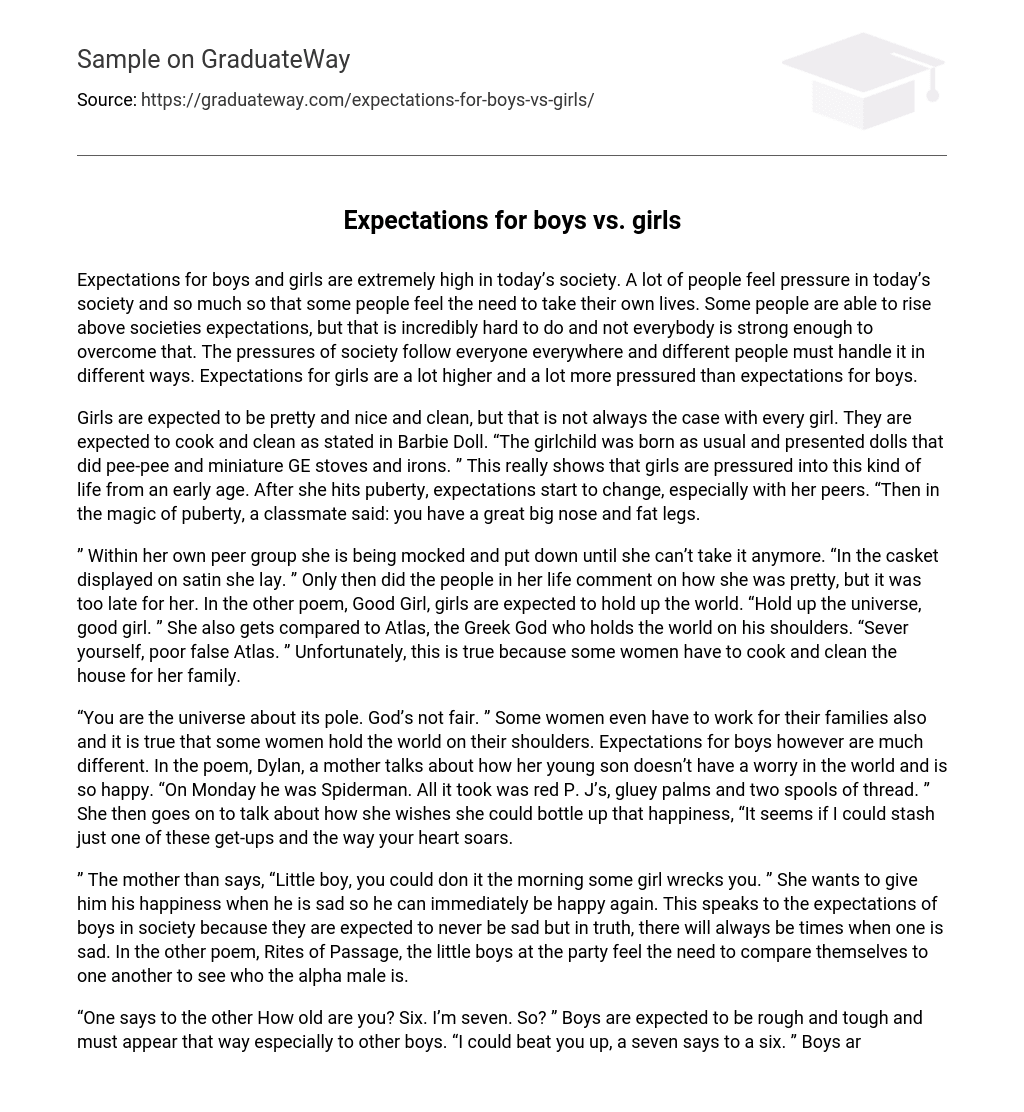In today’s society, boys and girls alike experience immense societal pressures that can be so overwhelming that they may contemplate suicide. While some individuals are able to overcome these expectations, it is a difficult task that not everyone can handle. These pervasive social pressures affect each person uniquely as they seek their own coping mechanisms. Notably, the expectations thrust upon girls are significantly greater and more intense than those imposed on boys.
Girls face societal expectations regarding their appearance and behavior, often striving to meet certain beauty standards while maintaining pleasant hygiene. However, not all girls conform to these expectations. Additionally, they are often pushed to fulfill traditional gender roles like cooking and cleaning as portrayed in the Barbie Doll poem, indicating the influence of societal pressures from a young age. As girls enter puberty, their peers’ expectations may change. During this phase, one classmate drew attention to the protagonist’s physical flaws by commenting on her “great big nose and fat legs,” exemplifying the shifting expectations faced by girls at this stage of life.
“She is mocked and ridiculed by her peers within her own age group until she reaches her breaking point. Only when she lies in a casket adorned with satin do the people in her life finally acknowledge her beauty, but it is too late. Another poem, Good Girl, explores the expectations placed on girls to carry the weight of the world. They are told to ‘hold up the universe, good girl,’ and are even likened to Atlas, the Greek God who shoulders the burden of the world. Sadly, this comparison holds true for some women who are expected to fulfill domestic duties such as cooking and cleaning for their families.”
“You are the universe spinning on its axis. God doesn’t play fair.” Despite acknowledging that some women also have responsibilities in supporting their families, it is undeniable that certain women carry a significant burden. However, there exists a stark contrast in expectations for boys.
In this poem, Dylan, a mother, describes her son’s carefree and contented nature. She narrates how he effortlessly transforms into Spiderman simply by wearing red pajamas, having sticky palms, and utilizing two spools of thread on Mondays.
The mother wishes to preserve her son’s pure happiness and expresses her longing to save one of his outfits while capturing the way his heart soars.
“The mother advises the young boy to use his happiness as a shield, protecting him during times when he feels emotionally hurt by a girl. This emphasizes society’s pressure on boys to hide their sadness, despite its inevitability. Similarly, in the poem ‘Rites of Passage,’ boys at a party feel compelled to compete and establish dominance among themselves.”
Two boys engage in a conversation about their ages. One boy says he is six, and the other claims to be seven. The second boy challenges the first by saying he can defeat him in a fight. Boys are expected to display tough and robust behavior, especially when interacting with each other. Expressing emotions or sensitivity is not accepted among males, and those who do so are ridiculed. The host of the party addresses everyone, mentioning their ability to harm a two-year-old, which strengthens their shared interest and camaraderie.





